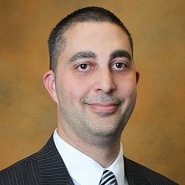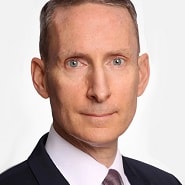Despite the myriad benefits, including increased patient engagement, telehealth remains an option, not an imperative. As a result, “we are still underperforming as an industry compared to the promises made and the vision we’ve spun,” said Joseph Kvedar, MD. In this piece he examines why that’s the case and how healthcare can turn the tide.
“Like Herding Cats”: Making a Case for AI Assurance Labs
As AI continues to build momentum, a group of health systems, government agencies and tech companies are banding together to develop “a set of guidelines for safe, secure and trustworthy AI algorithms,” according to John Halamka, MD. In this blog, he outlines the five main objectives of the network.
“Gaps in the Ecosystem”: How IT Leaders and Vendors Can Work Together to Improve Patient Engagement
Patients don’t view their experience as “a series of encounters,” and therefore, neither should health systems, said Dick Taylor, MD, of BJC Healthcare. “They need a continuous, consistent experience.” During a recent webinar, he and co-panelists Zafar Chaudry and Aditya Bansod talked about what leaders on the provider and vendor sides can do to make that happen.
Breaking from Tradition: Q&A with Heather O’Sullivan, President, Healthcare at Home, Mass General Brigham
With the right strategy and partnerships in place, there’s a way to “address the health system’s key challenges around capacity constraints while emphasizing patient comfort and privacy,” said Heather O’Sullivan, President of the Healthcare at Home Division at Mass General Brigham. In a recent interview, she talked about what it takes to break with tradition and establish a new model for care delivery.
Q&A with Englewood Health CIO Inderpal Kohli: “Only 20 Percent of It Is About Tools.”
With resources becoming increasingly scarce, it’s more important than ever to prioritize value, said Inderpal Kohli, CIO at Englewood Health. During a recent interview, he talked about what it means to be “a use case and outcomes-driven organization,” how he works to connect his team with the mission of the organization, and the real challenge with digital transformation.
“It All Comes Down to Value”: CIOs Discuss Keys to Establishing a Digital Front Door
The term ‘digital front door’ gets thrown around a lot. But to truly make an impact, “it needs to be welcoming, to add value, and to be something the community wants,” said Michael Saad, CIO at Munson Healthcare. During a recent panel, he shared best practices for driving digital transformation, along with Aaron Miri and Joshua Titus.
Maslow’s Hierarchy, Running Shoes and the Foundation for AI
There’s no doubt about the sky-high potential of AI, but without the critical foundational layers of the healthcare hierarchy in place, it may never be realized, according to Daniel Barchi, CIO at CommonSpirit. In this piece, he examines the steps that need to be taken to enable AI tools to “help deliver transcendent healthcare.”
Is the Future of AI in Good Hands?
Live @ Vive Partner Perspective Q&A with Guillaume de Zwirek, CEO, Artera: Health Systems Must Bring Governance to Patient Outreach
In an effort to better engage with patients, many health systems have gotten themselves into a pickle by going overboard. Today, with almost every department running its own patient engagement efforts, those at the end of all that attention are feeling overwhelmed. But there’s a better way, and it starts with governance, according to Guillaume de Zwirek, CEO, Artera.
“This Is Real Innovation”: Q&A with Michael Hasselberg, CDHO, University of Rochester Medical Center
How much of an impact can Generative AI have – if leveraged properly, and if all the necessary pieces are in place? Quite a bit, according to Michael Hasselberg. “This is the first time in my career thus far that I’m hopeful that technology will actually make the lives of our clinicians better.” In a recent interview, he explained why, and talked about the innovative work being done at URMC.










